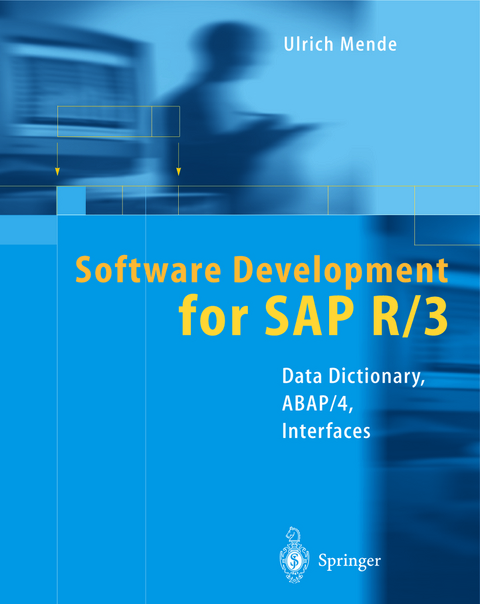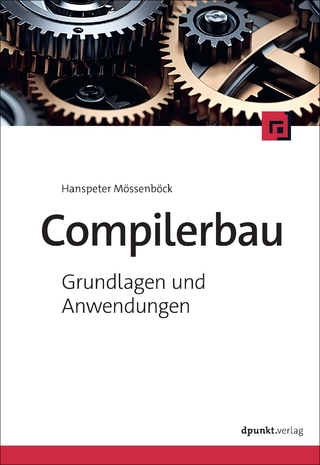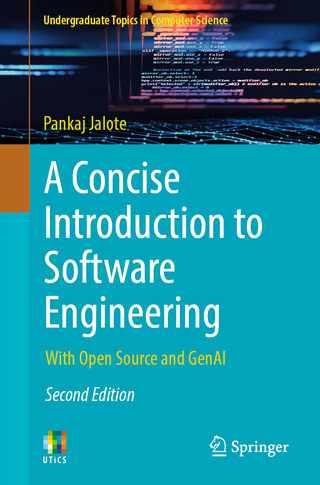
Software Development for SAP R/3®
Springer Berlin (Verlag)
978-3-642-62971-6 (ISBN)
Dr. Ulrich Mende ist seit 12 Jahren als selbstständiger R/3-Berater, Entwickler und Trainer im Bereich ABAP-Workbench und SAP Business Workflow tätig. Er hat in den letzten Jahren für so namhafte Firmen wie die Deutsche Börse AG, die E.ON AG, die RWE AG und die Berliner GASAG komplexe Workflow-Anwendungen entwickelt und bis zur Produktivsetzung begleitet. Das vorliegende Buch entstand direkt aus seiner Entwicklertätigkeit in diesen Projekten.
1 Introduction.- 1.1 Content and Aim of the Book.- 1.2 Limitations.- 2 R/3 Computer and Software Architecture.- 2.1 Three-level Client-Server Architecture.- 2.2 Software Architecture.- 2.3 Operational Modes for Developers.- 3 The Example - A Service System.- 3.1 Logical Data Model.- 3.2 Use of the Example.- 4 Data Dictionary and Data Modeler.- 4.1 Data Dictionary.- 4.2 Data Modeler.- 5 Workbench.- 5.1 Program Development Objects.- 5.2 Primary Objects.- 5.3 Use of the Workbench.- 5.4 Important Workbench Tools.- 6 ABAP/4 Fundamentals.- 6.1 ABAP/4 Characteristics.- 6.2 Internal Fields.- 6.3 Output Instructions - WRITE, SKIP, ULINE, NEW-PAGE.- 6.4 Control Instructions.- 6.5 Field Strings.- 6.6 Internal Tables.- 6.7 User-Defined Data Types - TYPES.- 6.8 Field Symbols - FIELD-SYMBOLS, ASSIGN.- 6.9 Database Access Using Open SQL.- 6.10 Database Access with Native SQL.- 7 Interactive Reports.- 7.1 Event Control.- 7.2 Texts and Menus.- 7.3 List Processing.- 7.4 Group Change.- 8 Advanced Programming Techniques.- 8.1 Macros and Includes.- 8.2 Subprogram Technique Using Forms.- 8.3 Data Exchange Between Reports.- 8.4 Logical Databases.- 8.5 Function Groups and Function Modules.- 8.6 Authorization Checks.- 9 Development of Dialog Transactions.- 9.1 Concept.- 9.2 Dialog Program Components and Their Processing.- 9.3 Screen Processing.- 9.4 Screen Flow Control.- 9.5 Example 1: Hand Calculator.- 9.6 Screen Layout Features.- 9.7 Example 2: Two Table Controls on a Dynpro.- 9.8 Database Operations.- 9.9 Example 3: Updating Action.- 9.10 Transaction Manager for Complex Business Transactions.- 10 Background Processing.- 10.1 Concept.- 10.2 Interactive Processing with the Job Control.- 10.3 Programming the Job Control - an Example.- 10.4 Special Questions Concerning the Background Processing.- 11 File Interfaces.- 11.1 Read and Write Files on the Application Server.- 11.2 Read and Write PC Files.- 11.3 Processing of the Data from an ASCII File.- 11.4 Logical File Interfaces (LFI).- 12 Batch Input.- 12.1 Concept.- 12.2 Classic Batch Input Using Sessions.- 12.3 Batch Input Using CALL TRANSACTION.- 13 Desktop Integration.- 13.1 Remote Function Call (RFC).- 13.2 Desktop Integration with OLE.- 14 Development Aids.- 14.1 Pretty Printer and Program Checks.- 14.2 Testing of Function Modules.- 14.3 Dump Analysis.- 14.4 Debugger.- 14.5 SQL Trace.- 14.6 Runtime Analyses.- A Important System Fields from the SYST Structure.- B Important Transaction Codes.- C Programs.- D Sample Tables.- E Diskette Contents.
| Erscheint lt. Verlag | 3.10.2013 |
|---|---|
| Zusatzinfo | XI, 347 p. |
| Verlagsort | Berlin |
| Sprache | englisch |
| Maße | 193 x 242 mm |
| Gewicht | 706 g |
| Themenwelt | Mathematik / Informatik ► Informatik ► Programmiersprachen / -werkzeuge |
| Informatik ► Theorie / Studium ► Compilerbau | |
| Schlagworte | 4GL • 4GL-language • 4GL-Sprache • ABAP • ABAP/4 • data model • Development • interfaces • language • R/3 • SAP • SAP R/3 • Software • software development • Software Engineering / Softwareentwicklung • Softwareentwicklung • structured analysis |
| ISBN-10 | 3-642-62971-7 / 3642629717 |
| ISBN-13 | 978-3-642-62971-6 / 9783642629716 |
| Zustand | Neuware |
| Informationen gemäß Produktsicherheitsverordnung (GPSR) | |
| Haben Sie eine Frage zum Produkt? |
aus dem Bereich


